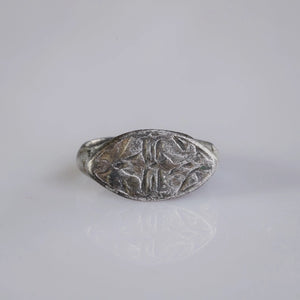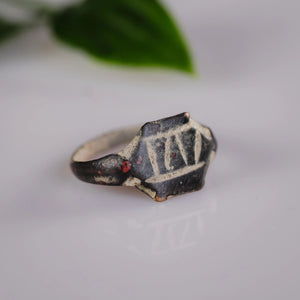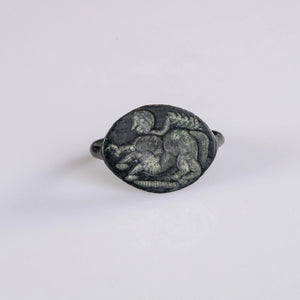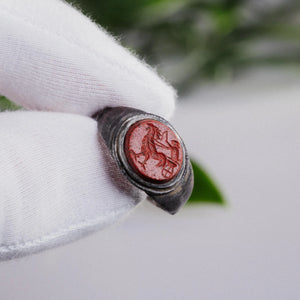Interesting facts
Crossbows have long captured imaginations, conjuring images of medieval archers in forest shadows or heroes in fantasy realms poised for adventure. This fascination fuels interest: could you legally own one yourself in the UK? Before you picture the thrill of drawing one back or hitting an arrowed target, it’s essential to understand what the law says. Questions like “Can I legally own a crossbow in the UK?” or “Are there age limits or permits required?” come up often. Let’s explore these topics carefully, laying out the legal facts clearly while recognizing the responsibility that owning such a weapon demands.
The Legal Framework: The Crossbows Act 1987
The legal heart of crossbow possession in the UK lies in the Crossbows Act of 1987. This legislation sets out the rules for owning and using crossbows in England, Scotland, and Wales. The bottom line: adults can buy and own a crossbow without needing any license or registration. This stands in contrast to laws governing firearms, which are far more restrictive.
But why does the law distinguish crossbows this way? In essence, crossbows are not firearms by definition, so the government took a different approach that balances safety concerns with allowing enthusiasts and hobbyists their pastime. The Act aims to ensure public safety without unnecessarily limiting lawful private ownership. History enthusiasts eager to connect with the past in more ways than one might find interest not just in crossbows, but also in items like the 'Auriga' - Roman Silver Ring (1st–3rd CE) from Aurora Antiqua's Highlights Collection. This store offers artifacts that merge ancient artistry with modern relevance, reminding owners of the responsibility embedded in both acquiring knowledge and owning such items.

Age Restrictions: Protecting Youth and Public Safety
One of the strictest measures in the Crossbows Act is the age restriction: it is illegal for anyone under 18 to buy or possess a crossbow. This clear line reflects concerns about safety and misuse among younger individuals. After all, owning a weapon capable of inflicting serious injury requires maturity and sound judgment.
Imagine a teenager gaining access to such a powerful tool without training or oversight—that risk is precisely what the law seeks to prevent. It’s not about denying interest or stifling potential archers, but about protecting vulnerable groups and keeping weapons out of the wrong hands.
Regional Nuances Within the UK
While the Crossbows Act 1987 covers England, Scotland, and Wales uniformly, those living in Northern Ireland should be aware of stricter or slightly different controls. Rules about owning, carrying, and using crossbows can vary, so it’s prudent to check local guidelines or police advisories.
Additionally, local bylaws sometimes restrict carrying crossbows in public places like parks, town centres, or transport hubs. These laws emphasize safety and community peace, highlighting that owning a crossbow doesn’t equate to unrestricted use anywhere, anytime.
No License or Registration Needed: What Does This Mean?
The absence of licensing or registration for crossbows in the UK simplifies the process for lawful ownership. Unlike firearms, you don’t need to jump through hoops or apply for special permits to buy or keep a crossbow at home.
However, this freedom doesn’t remove responsibility. Owning a crossbow means accepting strict rules about safe use, storage, and respect for others. Reckless or unlawful conduct—such as carrying a crossbow around in public or threatening someone with it—can still lead to serious legal consequences under other criminal laws.
In other words, no licence doesn’t mean no accountability. The law expects all crossbow owners to act responsibly, keeping the weapon secure and using it only in appropriate settings.
Why Would Someone Want to Own a Crossbow?
When we think about crossbow ownership, it’s important to recognize the many legitimate reasons people cherish these weapons. For some, it’s a sport: target shooting with crossbows can be a fulfilling hobby, demanding focus and fine motor skills.
Others are drawn by historical reenactments, where accurate period props add depth and authenticity to performances. Some use crossbows in controlled, legal hunting scenarios, although hunting laws in the UK are quite specific and restrictive.
There’s a certain discipline involved in mastering a crossbow’s mechanics. It’s not merely about power or force—it’s about precision, patience, and respect for the weapon. Many owners find that this mix of technical challenge and traditional craft makes crossbows genuinely rewarding.
Crossbows and Public Safety: Weighing Rights Against Risks
Governing crossbow ownership involves a careful balance. These weapons carry significant force and, if misused, could cause serious injury or even death. That’s why the law sets boundaries—age restrictions, no public carrying without excuse, and safe storage requirements—to protect the community.
The Crossbows Act 1987 reflects a middle path: adults may own crossbows legally, but with clear limits designed to minimize risk. The government’s goal is not to criminalize enthusiasts but to promote responsible ownership.
What Happens if You Break the Rules?
Crossbow laws come with teeth. If a minor sells, buys, or possesses a crossbow, legal consequences can follow: fines, confiscation, or even prosecution. Anyone caught buying one for a minor faces penalties too.
Misuse—such as threatening or injuring someone with a crossbow—falls under criminal law on assault or endangering the public. In these cases, offenders can face imprisonment or severe fines.
This shows: even without registration or licensing, the law protects people by enforcing responsible behavior. Crossbow owners must understand their actions have consequences.
How to Purchase a Crossbow Responsibly in the UK
If you’re over 18 and considering buying a crossbow, your first step should be to find a reputable dealer. Good dealers always check your ID to verify legal age and can offer safety advice or documentation.
Before your purchase, take time to learn about the legal framework and safety guidelines. Know where you're allowed to use the crossbow (private land or approved shooting ranges), and understand how to store it securely.
Owning the weapon entails more than the initial purchase. Always keep your crossbow unloaded when not in use, locked away where children or unauthorized people cannot access it. Never carry your crossbow in public spaces unless you have a reasonable excuse or explicit permission.
Embrace Ancient Artistry
Explore the 'Auriga' RingCrossbows in Sport and Hobby Communities
Though still relatively niche, the UK’s crossbow sporting community is growing. Clubs often offer novices lessons, emphasizing safety, technique, and respect for the weapon.
Being part of such a group provides a supportive environment to develop skills, ask questions, and socialize with like-minded enthusiasts. Events often bring a spirit of friendly competition, highlighting traditional marksmanship skills melded with modern practices. A visual representation captured during these community events can offer an inspiring glimpse into the camaraderie and discipline shared among participants, reflecting the true spirit of the sport.
Community standards also promote good citizenship: safe handling, proper storage, and adherence to legal boundaries. This collective attitude benefits everyone by building trust between owners and the wider public.
Comparing Crossbow Laws with Other Countries
Looking across borders, the UK’s stance on crossbows is fairly moderate. Some countries demand firearm-like permits or bans ownership altogether. Others might impose looser restrictions, allowing crossbows in nearly all circumstances.
The UK's approach—legal ownership for adults with clear age limits and safety conditions—strikes a balance. It respects personal freedom while acknowledging the potential dangers.
This middle ground aims to avoid unnecessary prohibitions while preserving public safety, setting an example in how to regulate a unique weapon category thoughtfully.
Real-Life Stories: Learning Through Experience
Stories from crossbow owners help illustrate the law’s practical side. For instance, a retired teacher found a new passion in crossbow shooting after a local club’s invitation. Early on, he nearly had an accident, underestimating the kinetic energy involved.
With patience and after attending safety workshops, he mastered proper handling and secure storage. This journey deepened his respect for the tradition and responsibility the sport demands, making the crossbow a source of personal fulfillment instead of danger.
Conversely, police reports occasionally highlight cases where minors illegally obtained crossbows, causing alarm in communities and prompting swift law enforcement responses. These real examples underline why the law’s safeguards are vital—ensuring crossbows don’t fall into careless or harmful hands.
Tips for Safe Crossbow Ownership
For those intrigued by owning a crossbow, practical guidance can make a big difference:
- Always store your crossbow unloaded in a locked container or cabinet, away from children, visitors, or anyone not cleared to use it.
- Use protective gear when shooting, including arm guards and safety glasses.
- Never aim or shoot at anything you don’t intend to hit responsibly, especially never at people or pets.
- Regularly inspect your crossbow for wear or damage; mechanical failures can be dangerous.
- Learn thoroughly about your particular model’s operation and maintenance needs.
- Consider joining a local archery or crossbow club to access training and community support.
- Familiarize yourself with local laws regarding where you can use your crossbow legally.
By adopting these habits, owners not only protect themselves but also help build a positive reputation for crossbow users in the wider community.
Addressing Common Questions
What are some unusual historical uses of crossbows that aren't widely known today?
Historically, crossbows were not only used for warfare and hunting but also for scientific experiments and aerial combat training. Leonardo da Vinci famously designed an enormous crossbow to test concepts of torsion and tension. Additionally, in the early 20th century, crossbows were utilized for training pilots in aerial marksmanship before being effectively replaced by machine guns. These roles, while less known, highlight the crossbow's versatile applications beyond conventional warfare.
Many readers wonder: can you carry a crossbow in public? Generally, no. Carrying a crossbow openly or concealed without a lawful reason is illegal and can lead to arrest.
What about sending a crossbow through the post? Most postal services prohibit sending weapons like crossbows by standard mail, due to safety and security rules.
People also ask about hunting wild game with crossbows. UK law tends to restrict such use—to hunt deer or similar animals with a crossbow is usually illegal. Regulations vary by region and species, so it’s important to check detailed wildlife licensing rules before considering hunting.
Final Thoughts: Responsibility Comes First
So, can you legally own a crossbow in the UK? The answer is yes, if you’re at least 18 years old and comply fully with the various laws and safety protocols. The Crossbows Act 1987 provides a balanced framework that allows ownership without burdensome licensing, while still prioritizing public safety.
Owning a crossbow is not just a matter of legality—it’s a commitment. It demands respect for the weapon’s power, attention to safe practices, and mindfulness towards the community.
One notable example of a domestic product designed with legal compliance and quality in mind is the **Barnett Whitetail Hunter Crossbow**. This model combines solid craftsmanship with reliability, helping owners feel confident they’re using a tool built to meet UK standards.
Whether your interest lies in sport, historical appreciation, or simple curiosity, knowing the law and treating your crossbow responsibly will ensure your experience is both rewarding and safe.
Remember: the appeal of a crossbow is entwined with a greater responsibility. Those who embrace that responsibility can enjoy their journey with confidence and peace of mind.
For history enthusiasts, the 'Auriga' - Roman Silver Ring (1st–3rd CE) offers a unique connection to the past, merging ancient artistry with the present. A piece from Aurora Antiqua can remind owners of the rich tapestry of history and the responsibility that comes with carrying such legacies forward.
What is the minimum age to legally own a crossbow in the UK?
In the UK, the minimum age to legally own a crossbow is 18 years old, as stipulated by the Crossbows Act 1987.
Do I need a license to own a crossbow in the UK?
No, you do not need a license to own a crossbow in the UK. However, you must comply with the Crossbows Act 1987, including respecting age restrictions and safety guidelines.
Can crossbows be carried in public in the UK?
Generally, carrying a crossbow in public is illegal in the UK unless you have a lawful reason. Doing so can lead to arrest and prosecution.




